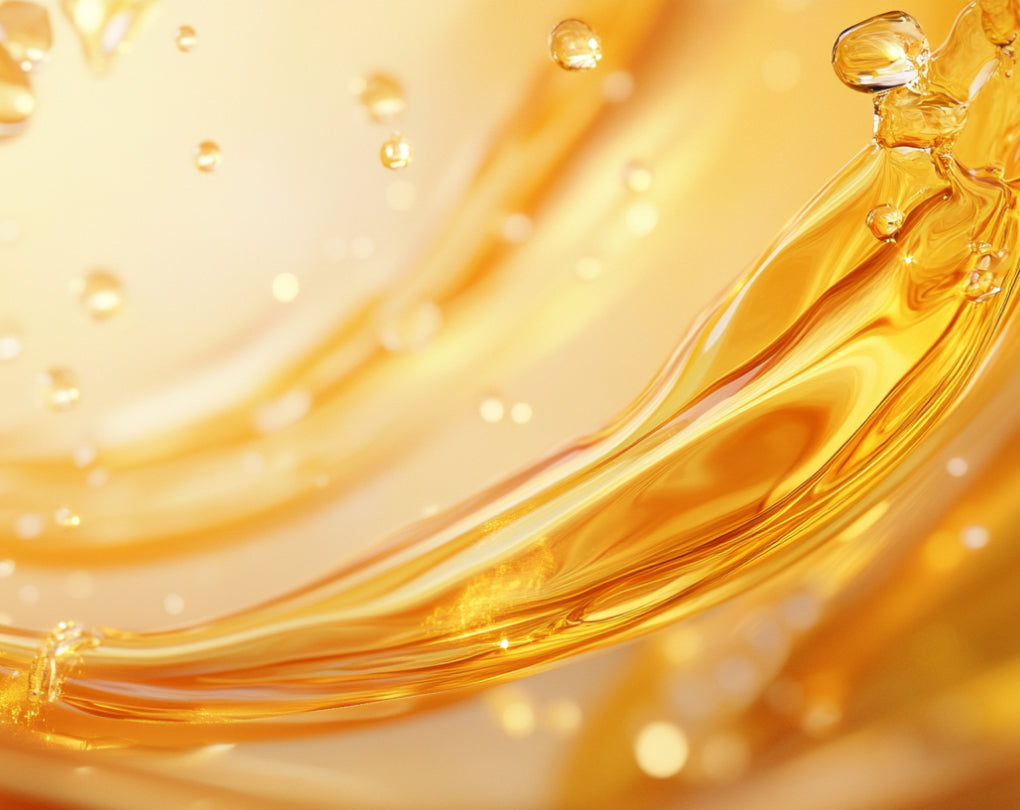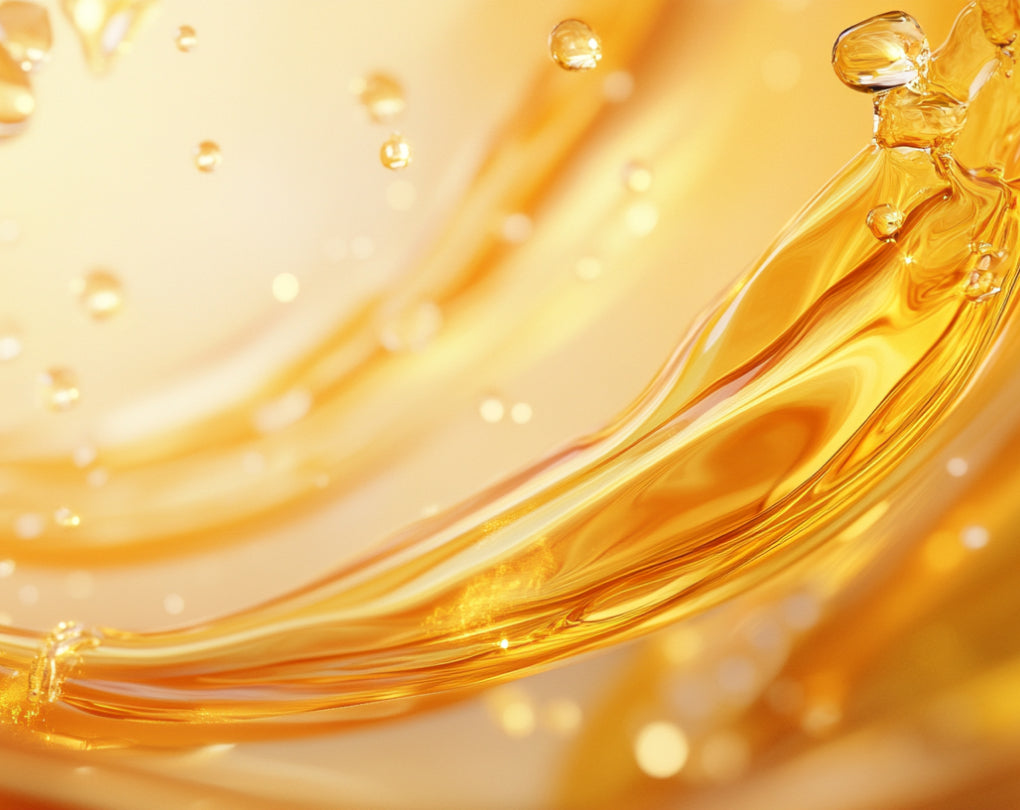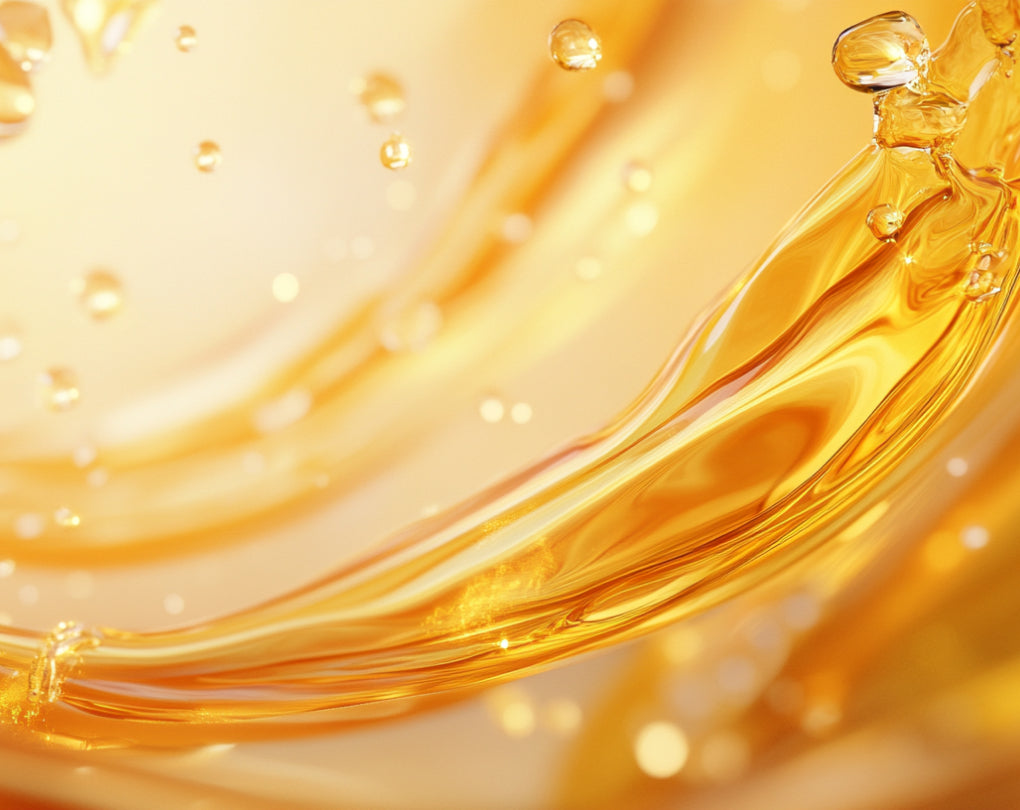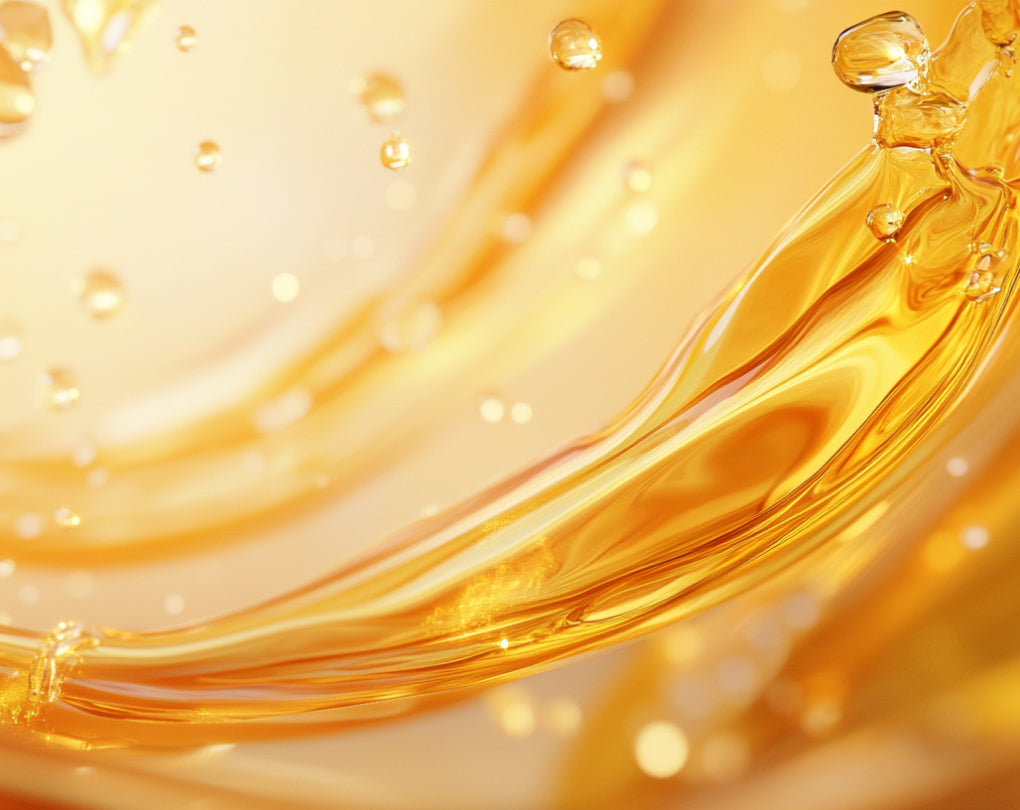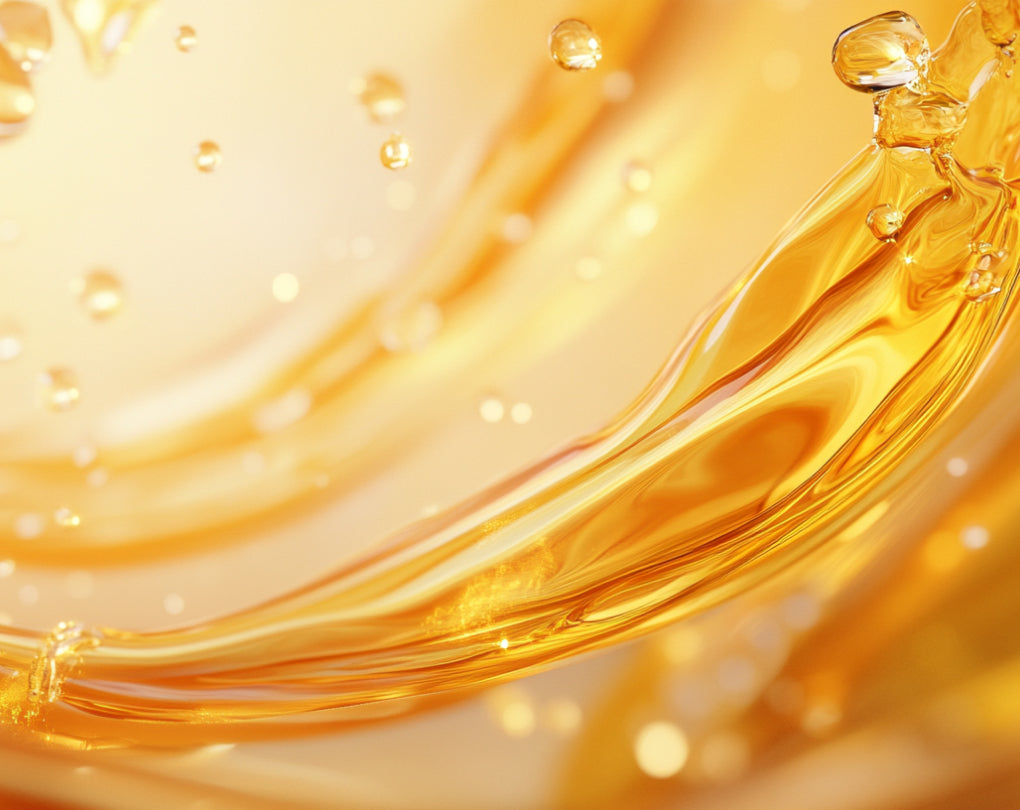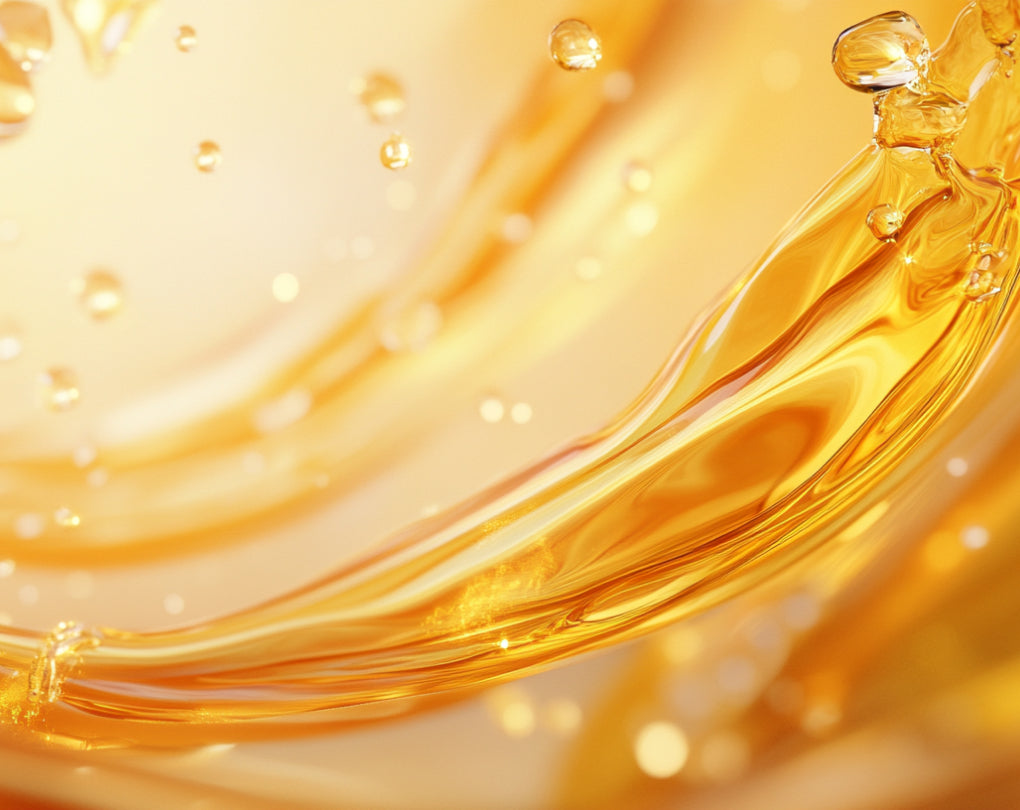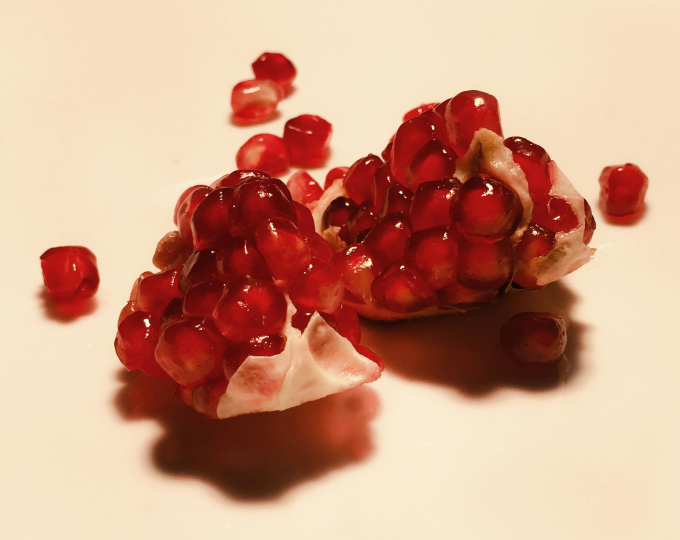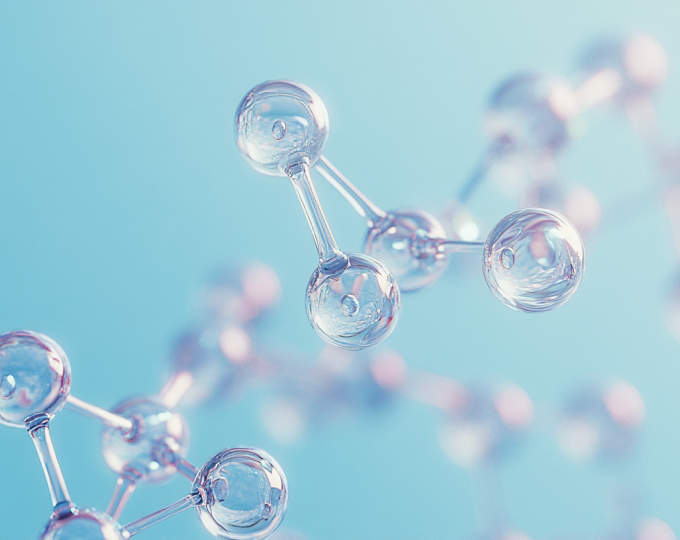Themen dieses Blogartikels:
Table of contents
- Definition: What is oleic acid?
- Difference to Omega-3 & Omega-6
- What are the functions of oleic acid?
- What makes oleic acid unique?
- How much oleic acid do you need per day?
- Recommendation for daily fat intake
- When do you especially need oleic acid?
- Important for brain function and metabolism.
- How does a deficiency of oleic acid occur, and how does it manifest itself?
- What should one pay attention to when taking oleic acid?
- Which foods contain a particularly high amount of oleic acid?
- Bibliography & Sources
Definition: What is oleic acid?
Oleic acid is a monounsaturated fatty acid, where the word "mono" refers to the number of double bonds within its chemical structure. That is, oleic acid has one double bond. In comparison, polyunsaturated fatty acids have multiple double bonds.
Other names for this fatty acid are Z-9-octadecenoic acid or oleic acid. Pure oleic acid is a colorless, oily, and almost odorless liquid.¹ However, it rarely occurs in nature in its pure form, but is usually a component of so-called triglycerides. These are dietary fats that provide the body with energy.²
Difference to Omega-3 & Omega-6
Oleic acid belongs to the omega-9 fatty acids because its double bond is located at the 9th carbon atom.³ This distinguishes it from omega-3 fatty acids and omega-6 fatty acids, whose first double bond is located at the 3rd C atom and 6th C atom respectively.⁴
What are the functions of oleic acid?
In adequate amounts, oleic acid has many beneficial effects on your health. For example, it regulates cholesterol levels by lowering total cholesterol and "bad" LDL cholesterol levels, while the levels of "good" HDL cholesterol remain almost unchanged.⁵ Furthermore, it is known that oleic acid-rich oils, such as olive oil, can lower blood pressure.⁶ In addition, oleic acid has a protective effect on blood vessels by inhibiting inflammatory processes.⁷ All of this has a positive effect on the cardiovascular system .
However, oleic acid is also interesting for cancer research. As a study by the University of Edinburgh has shown, monounsaturated fatty acids can lead to a reduction in cancer-causing proteins. Furthermore, oleic acid could influence the intracellular signaling pathways involved in the development of cancer cells.⁸
Advertisement
- Organic extra virgin olive oil (Omega 9 fatty acid) from Italy
- From controlled organic cultivation, without pesticides & artificial fertilizers
- 11 valuable fatty acids
- Careful harvesting of the olives
- Gentle cold centrifugation process <27°C - ensures preservation of aromas & polyphenols
- Mild-fruity oil without additives
- Organic quality, vegan & vegetarian
- Developed with doctors & experts

What makes oleic acid unique?
Oleic acid is a so-called depot fat. This means that the body can store this fatty acid as an energy source in the fat cells and draw on it as needed.⁹ Oleic acid is the most common fatty acid in human adipocytes, i.e. in the fat-storing cells of white and brown adipose tissue.¹⁰
Consequently, this fatty acid is an important energy reserve and ensures, for example, that you can exercise in the morning without having a large breakfast beforehand. However, an unbalanced, high-fat diet can also lead to overweight. According to a study by the University of Oklahoma, oleic acid can activate certain signaling pathways in the body that lead to the formation of precursor cells, from which new fat cells later develop.¹¹ This does not mean, however, that you should avoid foods containing oleic acid – quite the contrary. Fats are among the essential nutrients and are crucial for our health.
How much oleic acid do you need per day?
The body can produce omega-9 fatty acids, such as oleic acid, itself, for example from stearic acid. They are therefore non-essential nutrients. You don't necessarily need to obtain them through your diet to stay healthy. This distinguishes omega-9 fatty acids like oleic acid from omega-6 and omega-3 fatty acids, which are essential for humans and must be obtained through the diet. For this reason, the German Nutrition Society (DGE) does not issue a general recommendation regarding the daily dose of oleic acid.
Recommendation for daily fat intake
Nevertheless, vegetable oils, which also contain a large amount of oleic acid, are important for a balanced diet. The German Nutrition Society recommends consuming ten grams of high-quality rapeseed, olive, walnut, or soybean oil every day. This corresponds to about one tablespoon of oil.¹²
When do you especially need oleic acid?
Are you a little older? Then this effect might be interesting for you: Studies show that oleic acid can improve memory and overall cognitive performance in older people.¹³
Important for brain function and metabolism.
The Mediterranean diet, which includes the regular consumption of monounsaturated fatty acids, can therefore offer protection against cognitive decline. However, the intake of oleic acid can also have health benefits for diabetics. According to studies, this fatty acid can have positive effects on type 2 diabetes and insulin activity.¹⁴
How does a deficiency of oleic acid occur, and how does it manifest itself?
A deficiency of oleic acid is not to be feared – after all, it is a non-essential nutrient that the body can produce itself if needed. Furthermore, numerous foods such as olive oil, rapeseed oil, and avocado provide sufficient amounts of this fatty acid.
Apart from that, it is of course possible to consume too little fat in general. For a long time, fat was frowned upon as a fattening agent, and the nutritional myth that one should eat as fat-free or low-fat as possible to stay slim and healthy persists stubbornly. However, it has long been proven that a diet too low in fat can lead to deficiencies. For example, the body can only utilize fat-soluble vitamins such as vitamin A , vitamin D , vitamin E , and vitamin K if they are consumed together with fatty foods. A deficiency of these vitamins can lead to numerous health problems, such as fatigue, muscle pain, and circulatory disorders. And a deficiency of essential fatty acids such as Omega-3 can also have a negative effect and, for example, cause concentration problems.¹⁵
What should one pay attention to when taking oleic acid?
It's all about the mix! Researchers recommend a balanced diet with valuable fats from various sources, including nuts, fish, seeds, and vegetable oils. As a rule of thumb: the ratio of saturated to unsaturated fatty acids should ideally be 1:2. Omega-9 fatty acids play a special role here: more than one-third of the fat consumed should consist of these monounsaturated fatty acids, especially oleic acid.¹⁶
Which foods contain a particularly high amount of oleic acid?
As a component of the corresponding triglycerides, oleic acid is found in numerous oils and fats. Its proportion is particularly high in vegetable oils such as olive oil, sunflower oil, palm oil, rapeseed oil, sesame oil, avocado oil, grape seed oil, and peanut oil.¹⁷ However, this monounsaturated fatty acid can also be found in animal fats, such as goose fat and lard.¹⁸
This encyclopedia entry is based on carefully researched sources:
Bibliography & Sources
- chemie.de/lexikon/Olsäure.html
- netdoktor.de/laboratory-values/triglycerides/
- flexikon.doccheck.com/de/Olsäure
- ak-omega-3.de/omega-3-fatty-acids/what-are-omega-3-fatty-acids/
- fda.gov/food/hfp-constituent-updates/fda-completes-review-qualified-health-claim-petition-oleic-acid-and-risk-coronary-heart-disease
- pnas.org/doi/abs/10.1073/pnas.0807500105
- ahajournals.org/doi/10.1161/01.ATV.19.2.220
- research.ed.ac.uk/en/publications/dietary-fatty-acids-and-colorectal-cancer-a-case-control-study
- spektrum.de/lexicon/nutrition/depotfat/2002
- flexikon.doccheck.com/de/Olsäure
- aponet.de/article/oleic-acid-in-olive-oil-etc-how-healthy-fats-promote-obesity-31813
- dge.de/healthy-nutrition/eating-and-drinking-well/dge-nutrition-circle/oils-and-fats/
- pmc.ncbi.nlm.nih.gov/articles/PMC7909548/
- pubmed.ncbi.nlm.nih.gov/10700478/
- fitbook.de/nutrition/too-little-fat-nutrition
- health-research-bmftr.de/de/good-fat-bad-fat-8035.php
- chemie.de/lexikon/Olsäure.html
- praxistipps.focus.de/oleic-acid-occurrence-and-effect-of-the-unsaturated-fatty-acid_120280










